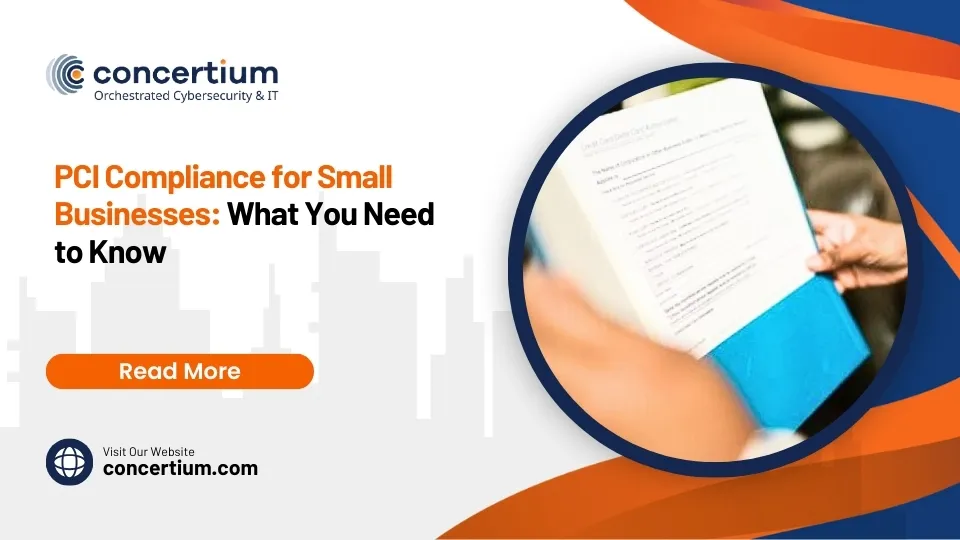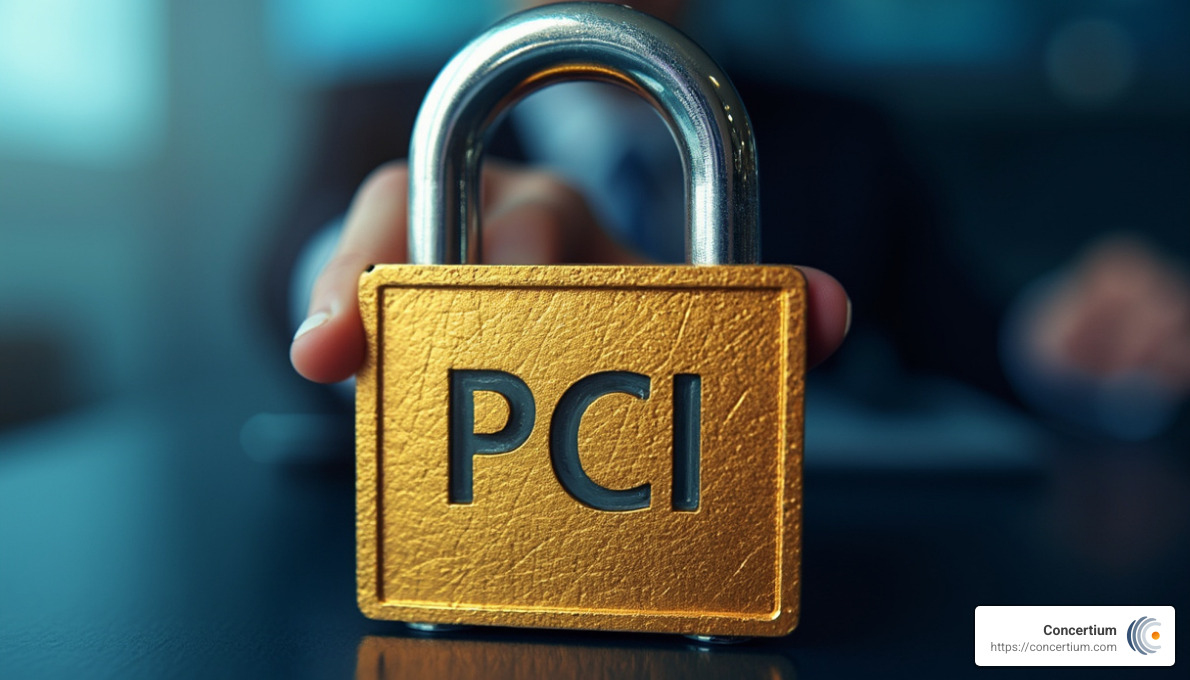Small business pci compliance is essential for protecting your customers’ credit card data and safeguarding your business against costly data breaches. At its core, PCI compliance involves adhering to a set of security standards aimed at securing credit card transactions against fraud. These standards, known as the Payment Card Industry Data Security Standards (PCI DSS), consist of 12 key requirements that every business, no matter how small, must follow to ensure the protection of cardholder data.
- What is PCI Compliance?
PCI compliance refers to the adherence to standards designed to protect credit card data. - Why is it Important?
It minimizes data breaches, protects cardholder information, and helps avoid fines. - Who Needs to Be Compliant?
Every business that processes, stores, or transmits credit card information.
Understanding these standards and applying them not only protects sensitive customer information but also improves your brand’s reputation by demonstrating a commitment to security. While it is not legally enforced, failing to comply can lead to penalties and damage your merchant status, resulting in higher transaction fees.
Implementing PCI compliance can appear daunting, but by breaking it down into manageable steps, small business owners can ensure they meet the necessary requirements without disrupting operations. As threats like ransomware and phishing continue to rise, following PCI guidelines becomes crucial to maintaining customer trust and ensuring long-term business success in today’s digital world.
Small business pci compliance vocab explained:
Understanding PCI Compliance for Small Businesses
PCI Compliance for Small Businesses is all about securing cardholder data. At its heart, PCI DSS (Payment Card Industry Data Security Standards) serves as a blueprint for protecting credit card information. These standards are set by the PCI Security Standards Council, a group formed by major credit card brands to combat fraud.
What is PCI DSS?
PCI DSS is a set of security standards aimed at ensuring that all companies that accept, process, store, or transmit credit card information maintain a secure environment. It’s not just a guideline; it’s a necessity for any business handling cardholder data.
Key Components of PCI DSS
- Security Standards: These include everything from installing firewalls to encrypting data and maintaining secure systems.
- Cardholder Data Protection: This involves measures like encryption and access restrictions to safeguard sensitive information.
- Compliance Levels: PCI compliance is categorized into four levels based on the volume of credit card transactions a business processes annually. Most small businesses fall into Level 4, which requires less stringent measures compared to larger enterprises.
Why PCI Compliance Matters
For small businesses, PCI compliance is not just about avoiding penalties. It’s about building trust with customers. When customers see that a business is PCI compliant, they feel safer using their credit cards, knowing their information is protected.
Moreover, being compliant can also mean avoiding costly data breaches. According to a study, the average cost of a data breach can be devastating for small businesses, often leading to significant financial losses and reputational damage.
In summary, small business PCI compliance is crucial not only for legal and financial reasons but also for maintaining customer trust and ensuring the longevity of the business. By understanding and implementing PCI DSS, small businesses can protect themselves and their customers in an increasingly digital world.
The 12 PCI DSS Requirements
To achieve small business PCI compliance, you need to follow the 12 PCI DSS requirements. These are your roadmap to securing cardholder data and protecting your business from data breaches.
1. Install and Maintain a Firewall
A firewall acts like a security guard for your network. It blocks unauthorized access and keeps sensitive credit card data safe. Make sure your firewall is strong and up-to-date to fend off cyber threats.
2. Protect Stored Cardholder Data
Encrypt any stored cardholder data. Encryption turns sensitive information into a code, making it unreadable to hackers. This is crucial for protecting your customers’ data.
3. Use and Regularly Update Secure Systems
Keep your systems and applications secure by regularly updating them. This includes applying patches to fix vulnerabilities and using antivirus software to protect against malware.
4. Restrict Access to Cardholder Data
Limit who can access cardholder data in your business. Only employees who need this data for their job should have access. Assign unique IDs to track who accesses data and when.
5. Maintain a Strong Security Policy
Create a security policy that outlines how your business protects cardholder data. This policy should be updated regularly and followed by all employees. It’s your blueprint for maintaining security and compliance.
6. Encrypt Data Transmitted Across Open, Public Networks
When sending cardholder data over the internet, always encrypt it. This ensures that even if data is intercepted, it remains secure and unreadable.
7. Regularly Test Security Systems
Conduct regular tests on your security systems to ensure they are functioning properly. This includes vulnerability scans and penetration testing to identify and fix potential weaknesses.
8. Track and Monitor Access to Network Resources
Monitor access to your network and cardholder data. This helps you detect suspicious activity and respond quickly to potential threats.
These requirements are part of a comprehensive approach to small business PCI compliance. By implementing these measures, you can protect cardholder data, build customer trust, and avoid costly penalties. Moving forward, let’s explore the steps to achieve PCI compliance.
Steps to Achieve PCI Compliance
Achieving small business PCI compliance involves a few key steps that ensure your business is handling cardholder data securely. Let’s break it down into three main actions: completing a self-assessment questionnaire, conducting network scans, and obtaining an attestation of compliance.
1. Complete a Self-Assessment Questionnaire (SAQ)
The first step is to fill out a Self-Assessment Questionnaire (SAQ). This questionnaire helps you evaluate your business’s current security practices and identify any gaps. There are different types of SAQs based on how you process transactions. For example, if you only take card payments in person, you might need a different SAQ than if you process payments online.
The SAQ involves answering a series of yes/no questions about how your business handles cardholder data. It’s important to be thorough and honest, as this will guide your compliance efforts.
2. Conduct Quarterly Network Scans
Next, you’ll need to conduct quarterly network scans. These scans check your systems for vulnerabilities that hackers could exploit. It’s like a regular health check-up for your network.
To perform these scans, you’ll need an Approved Scanning Vendor (ASV). These vendors are certified by the PCI Security Standards Council and can provide the necessary scans to ensure your network is secure.
3. Obtain an Attestation of Compliance (AoC)
Finally, you’ll need to complete an Attestation of Compliance (AoC). This document is a formal declaration that your business meets PCI DSS requirements. It serves as proof that you’ve completed the necessary steps, like the SAQ and network scans.
For small businesses, this process can be completed internally. However, if you handle a large volume of transactions, you might need a Qualified Security Assessor (QSA) to verify your compliance.
These steps are crucial for achieving small business PCI compliance. By following them, you can protect your customers’ data, build trust, and avoid penalties. Now, let’s move on to explore the benefits of PCI compliance.
Benefits of PCI Compliance
1. Customer Trust
When your small business is PCI compliant, it tells your customers that you take their data seriously. This builds trust. Customers are more likely to shop with you if they know their credit card information is safe. In fact, a strong reputation for security can lead to repeat business and positive word-of-mouth.
2. Data Protection
PCI compliance requires businesses to follow strict security standards. This means using firewalls, encrypting data, and updating antivirus software regularly. By doing this, you protect sensitive cardholder data from hackers. Protecting data helps prevent costly data breaches, which can lead to fines and a damaged reputation.
3. Operational Efficiency
Compliance isn’t just about security. It also makes your business operations smoother. When you follow PCI DSS requirements, you create a more organized and efficient system for handling credit card transactions. This can reduce errors and make it easier for your staff to manage payments.
4. Cost Reduction
While achieving PCI compliance might seem like an investment, it can actually save money in the long run. Avoiding data breaches means avoiding the hefty fines and legal costs that come with them. Plus, by streamlining your payment processes, you can reduce operational costs and improve your bottom line.
In summary, small business PCI compliance isn’t just about following rules. It’s about building a safer, more efficient, and trusted business. This not only benefits your customers but also boosts your business’s success.
Frequently Asked Questions about Small Business PCI Compliance
Do small businesses need to be PCI compliant?
Yes, small business PCI compliance is mandatory for any business that accepts credit card payments, regardless of size. Whether you’re a local coffee shop or a large retailer, if you handle credit card transactions, you must adhere to the Payment Card Industry Data Security Standards (PCI DSS). These standards help protect cardholder data and ensure secure payment processes.
Can I do PCI compliance myself?
Yes, you can handle PCI compliance on your own. Small businesses often start with a self-assessment questionnaire (SAQ) to evaluate their compliance with PCI DSS. This is a series of yes/no questions that help determine if you’re meeting the necessary security standards. For many small businesses, completing the SAQ and conducting required network scans takes less than a month. However, if your business processes a high volume of transactions, you might need an external assessment from a Qualified Security Assessor (QSA).
What happens if I am not PCI compliant?
Failing to achieve PCI compliance can lead to serious consequences. Non-compliant businesses risk facing penalties such as fines from credit card companies. These fines can range from $5,000 to $100,000 per month. Additionally, your merchant status could be jeopardized, meaning you might lose the ability to process credit card transactions altogether. Non-compliance can also result in higher transaction fees, increasing your operational costs. Therefore, maintaining compliance is crucial to protect your business and maintain smooth operations.
Conclusion
In the changing world of cybersecurity, ensuring your small business meets PCI compliance is more important than ever. At Concertium, we understand the unique challenges small businesses face in securing their payment systems. With nearly 30 years of expertise, we offer custom cybersecurity services that help protect your business from potential threats while ensuring compliance with industry standards.
Our approach is simple: We provide custom solutions designed to fit your business’s specific needs. Whether it’s threat detection, compliance, or risk management, our services are crafted to ensure maximum protection with minimal disruption. We believe that security should empower your business, not hinder it.
Concertium’s Collective Coverage Suite (3CS) offers AI-improved observability and automated threat eradication, setting us apart in the industry. By partnering with us, you’re not just investing in cybersecurity; you’re investing in peace of mind. Our hands-on, collaborative approach ensures that we work closely with you to identify solutions and areas for improvement that align with your company’s vision.
If you’re ready to take the next step in securing your business, we invite you to explore our consulting and compliance services. Let us help you steer the complexities of PCI compliance and safeguard your business for the future.




